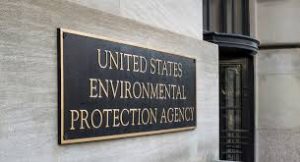
State Regulators Must Allow More Public Input Before Permitting More Pollution from Century Mount Holly Aluminum Smelter, north of Charleston
Washington, D.C. – In a major win for clean air advocates, the U.S. Environmental Protection Agency (EPA) ruled in favor of a petition to stop South Carolina’s recent revisions to a permit that would allow more air pollution from an aluminum factory north of Charleston.
The EPA’s decision means that the South Carolina Department of Health and Environmental Control will have to go back to the drawing board and allow more public input before changing the air pollution control permit for the 43-year-old Mt. Holly Century Aluminum smelting plant near Goose Creek in Berkeley County.
“Instead of requiring Century to invest in modern pollution controls for this old smelter, South Carolina tried to slip a major increase in dangerous particulate matter emissions and sulfur dioxide past the public in violation of the law,” said Jen Duggan, Deputy Director for the Environmental Integrity Project, which joined with the Sierra Club in challenging the illegal Century Aluminum permit revisions. “We need aluminum for solar panels, wind turbines, and more efficient cars and planes, but weakening clean air standards that protect downwind communities is not the answer.”
The Mt. Holly Century Aluminum plant has violated its legal pollution limits for pollutants such as particulate matter, which can trigger heart and asthma attacks, at least 23 times in the last five years, according to public records reviewed by the Environmental Integrity Project in a recent report.
Neighbors have also recently been subjected to multiple large releases of aluminum oxide (alumina) particles from the plant, which Century attributed to equipment malfunctions. The hazardous substance has rained down on their homes and cars, threatening their health and quality of life.
But despite these chronic pollution problems, state regulators – in response to a plan by Century to expand aluminum production – granted changes to the facility’s permit on January 12, 2023, that would allow for a 50 percent increase in the permitted amount of particulate matter that the plant could legally release from devices called “potlines.”
“EPA is holding our state agency accountable!” said Bob Guild, Chair of the Conservation Committee, South Carolina Chapter of the Sierra Club. “The Mt. Holly plant is only one of six aluminum smelters in the country, and we must ensure this critical facility is also protecting us from pollution. We must protect facilities like this that are providing lighter weight metals for transportation, wind, and solar while also safeguarding processes for our communities.” Under the state’s old permit for the plant, the facility was allowed to release 344 tons per year of particulate matter. The state then increased that to 503 tons per year under the revised permit.
The state on April 13, 2023, also approved a change to the plant’s permit to allow it to emit more sulfur dioxide air pollution, which contributes to lung disease and regional haze.
The Sierra Club and Environmental Integrity Project filed a petition with EPA on June 9, 2023, challenging the federal air pollution control permits (called the “Title V” operating permit). On Nov. 2, EPA issued an order granting a key part of the petition, ruling that both of South Carolina’s attempted changes to the permit were illegal in part because they had not provided adequate public notice or allowed for the public to have a meaningful opportunity to participate in the permit decisions, as required by the Clean Air Act.
“The public was deprived from the opportunity to meaningfully participate in that air pollution control permit” change, EPA Administrator Michael Regan wrote in the agency’s decision.
For a copy of the EPA decision, click here.
The Environmental Integrity Project is a nonprofit organization, based in Washington D.C. and Austin, Texas, dedicated to enforcing environmental laws and strengthening policy to protect public health and the environment.
Media contacts:
Tom Pelton, Environmental Integrity Project (443) 510-2574 or tpelton@environmentalintegrity.org
Ricky Junquera, Sierra Club National Senior Press Secretary (617) 599-7048 or ricky.junquera@sierraclub.org


